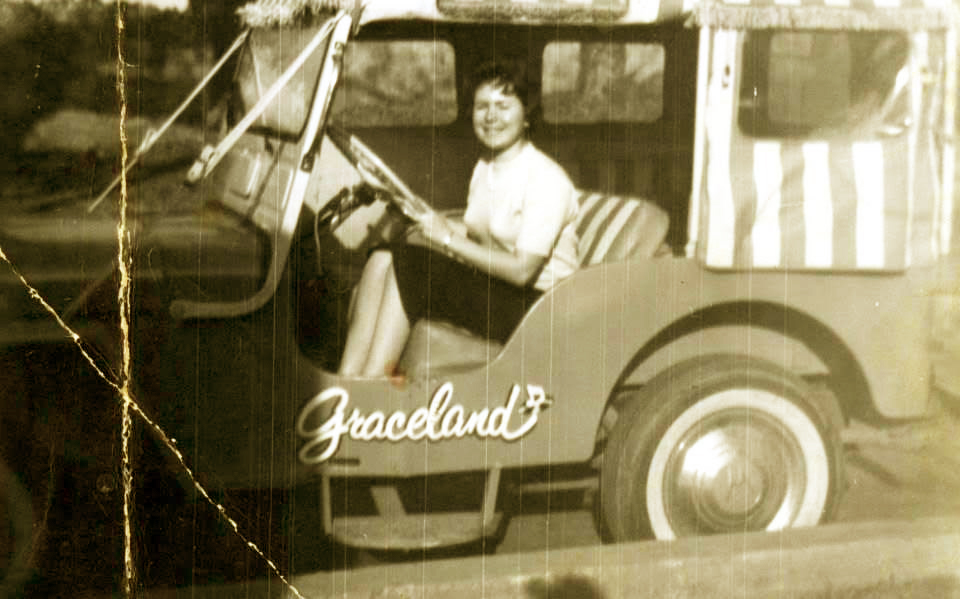By G. Wayne Dowdy
In another letter to Colonel John McLeod Keating, managing editor of the Memphis Daily Appeal during the 1878 yellow fever epidemic, your correspondent discusses how the Covid-19 pandemic has affected one of Memphis’s signature events.
Dear Colonel Keating:
Memphis has been rather quiet this past week. Normally during the middle of August the city is filled with thousands of people gathered to honor the life of the King of Rock ‘n’ Roll, Elvis Presley.
The hushed sounds of foreign tongues were absent and the legions of Elvis followers from Asia, Europe, and the northern regions of the United States could not be found. Only 720 people were able to attend the candlelight vigil at Elvis’s grave, a miniscule number compared to years past. The pandemic forced Graceland to either cancel or sharply curtail the events surrounding Elvis Week. This decision came as the number of Covid-19 infections in Shelby County decreased slightly with 3,587 active cases and 335 deaths.
If you lived in Memphis between 1954 and 1977 you have some kind of Elvis story. My great-grandmother Daisy Ann Smith was distantly related to Elvis’s mother Gladys and his uncles’ Johnny and Travis Smith. This gave our family a tenuous connection to the King – a relationship my mother once tried to take advantage of.

As a teenager in the late 1950s and early 1960s, Barbara Nance Dowdy was besotted with Elvis and dreamed of meeting him. One day she skipped school with a girlfriend and visited Graceland. Elvis was not there but her distant cousin Travis allowed them to visit the grounds and Mom had her picture taken in a Graceland jeep.
I too have an Elvis story, which happened on my 13th birthday.
August 16th, 1977 was a blisteringly hot day in Memphis. The temperature hovered at 93 degrees when, around 3:30 in the afternoon, the 42 year-old Elvis Presley was pronounced dead. Within a few minutes 150 people had gathered outside the Baptist Hospital emergency room to pay homage to the world famous singer. At the same time my family and I huddled around our Zenith color console TV to watch Dick Hawley and Roger Cooper of WMC-TV provide the latest updates while Mason Granger broadcast reaction from the growing crowd at Graceland.
The flickering images of Elvis fans wailing and staring dully into space reflected some of the feelings my parents experienced on that day. Children of the 1950s, my father Gerald M. Dowdy and my Mom loved Elvis’s music and were proud that he was a fellow Memphian. So when a tabloid writer named Steve Dunleavy stated during the NBC News special “Elvis Has Left the Building” that Presley came from a “white trash” background, Mom winced and became visibly angry.
We were not invited to Elvis’s August 18th funeral but we did watch the live broadcast of the services on Channel 5. As soon as the program ended we climbed into our Ford Galaxie 500 and tore out of Parkway Village to pay our respects.
Dad grew up outside the city limits near the rural community of Capleville. There was no high school in that section of the county so students were transported to Whitehaven High to attend school. As a result he knew where the cemetery’s service road was, which we took to avoid the traffic snarl at the main entrance. We drove down the dirt road and when we could go no further we walked through the woods and came up beside the mausoleum as a large crowd poured from the parking lot. On duty at the mausoleum was a police officer who had served with Dad in the Tennessee Army National Guard. The officer disappeared inside the monument where he plucked four flowers from Elvis’s crypt and gently handed them to each of us.
I remain,
Your faithful correspondent


